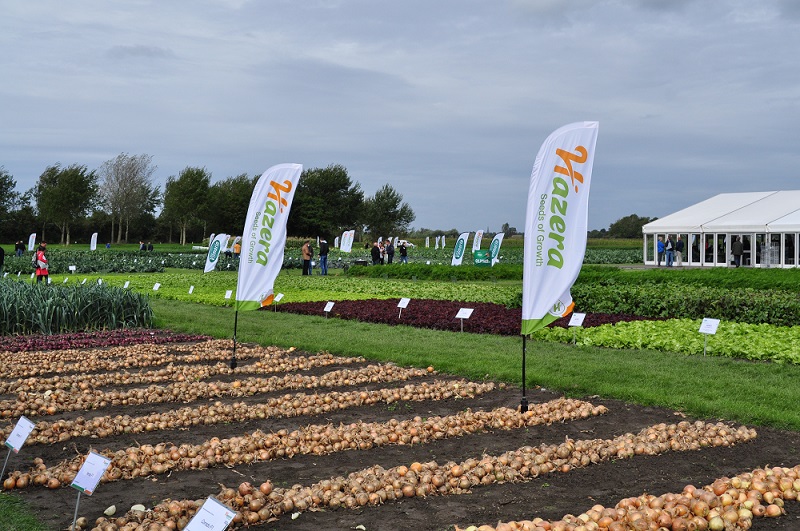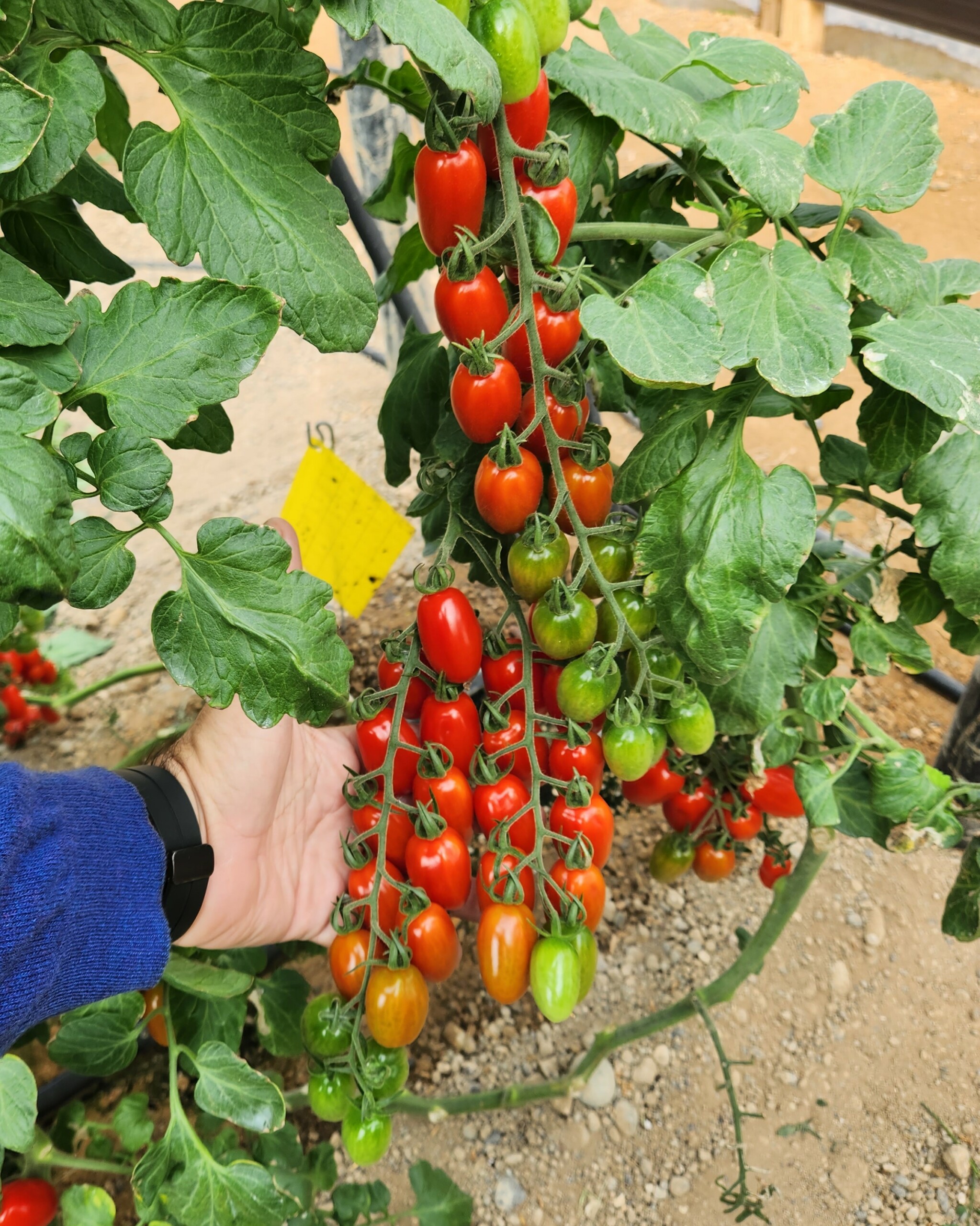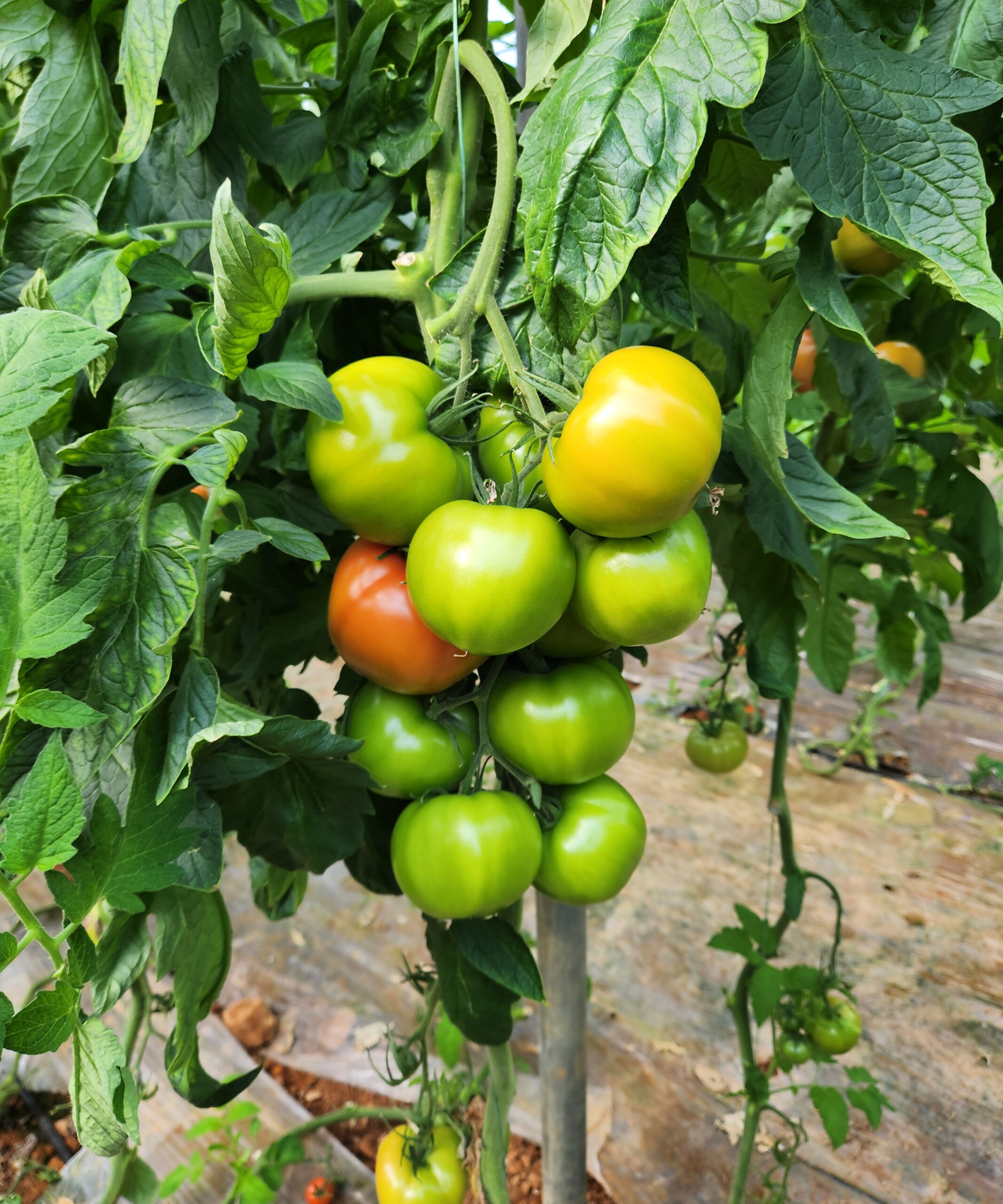Greece is recognized for its substantial consumption and production of tomatoes, both fresh and processed. This brief explores the transformative impact of Tomato Brown Rugose Fruit Virus (ToBRFV) resistant varieties on the tomato market, focusing on the pre-existing conditions, the emergence of dominant varieties, their characteristics, benefits, and the broader implications for tomato cultivation.
Let’s see what Petros Karkatselis, General Manager can tell us how the ToBRFV varieties changed the tomato market in Greece.
Market overview prior to ToBRFV resistant varieties
“Before the introduction of the ToBRFV resistant beef tomato varieties, the virus significantly affected the tomato cultivation in Greece. It caused a reduction of approximately 15% in tomato greenhouses cultivation area. This decline was attributed to the virus’s detrimental effects on both yield and fruit quality, prompting growers to shift to alternative crops, such as cucumbers and tomato mini plums, that we saw an increase in the last two years in cultivation area by over 15%.”
Which ones are the dominant varieties in the Greek market?
“Hazera introduced Thireos F1, the first ToBRFV resistant beef tomato variety in Greece, with initial plantings in spring and expanded cultivation into autumn/overwinter periods. The variety has shown promising results, with excellent yield and fruit quality, encouraging repeated cultivation among growers. Similarly, the mini plum tomato variety Lollipop has gained traction for its resistance to ToBRFV, bolstering grower confidence in tomato production free from the virus’s threats.”
What are the main benefits of these varieties?
“Thireos is characterized by a robust and vigorous plant producing large, shiny red beef tomatoes with outstanding taste and quality.
Lollipop is known for its strong plant and high yield, Lollipop produces fruits with exceptional taste and extended shelf life.
These varieties not only outperform older varieties in yield but also offer a resistance package that allows for the cultivation of non-grafted plants, reducing costs significantly.”
What tomato the growers are looking for today?
“The challenges of pest infestations (Tuta Absoluta), labor costs, and ToBRFV have contributed to a declined tomato cultivation in Greece. Growers are searching for resistant varieties that offer ease of cultivation and high performance to mitigate these threats. The demand for ToBRFV resistant varieties is a testament to the industry’s need for solutions that effectively address both the virus threat and cultivation costs.”
How are the Hazera ToBRFV-resistant varieties perceived in Greece?
“Hazera’s introduction of ToBRFV resistant varieties has been well-received in the market, providing growers with the means to produce high-quality tomatoes while alleviating concerns over virus-related losses. Hazera’s proactive support and knowledge sharing have been instrumental in assisting growers to optimize their cultivation practices and achieve superior results.”
How are Hazera’s efforts recognized?
“Hazera has been breeding resilient and resistant varieties to overcome the challenges in the market for a long time. With its ToBRFV varieties Hazera tackled new challenges and showed its commitment to support growers in difficult situations as well.”
How the ToBRFV varieties work for the growers?
“The introduction of ToBRFV resistant varieties, such as Pendragon, Giubilo, Windsor, Canelo, Lollipop and Thireos, aligns with the concept of “Tomato That Works for You,” emphasizing the synergy between innovative breeding techniques and the practical needs of tomato growers. This approach highlights the industry’s shift towards sustainable and resilient agricultural practices in the face of emerging threats.
In summary, the introduction of Hazera ToBRFV resistant tomato varieties has significantly influenced the Greek tomato market, offering new opportunities for growth, stability, and sustainability in the middle of challenges. Hazera’s contributions, through the development and support of these varieties, have been critical in revitalizing tomato cultivation in Greece, reflecting a commitment to innovation and sustainability in agriculture.”
Would you like to learn more about the market in Greece or have other questions? Contact us!











